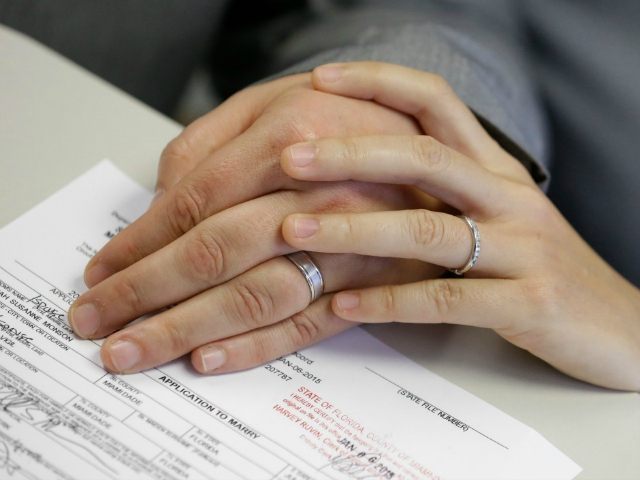The latest study finds that children raised by divorced parents are more likely to be “religiously unaffiliated” than those raised by married parents, an outcome that suggests a tie between faith identity and family permanence.
Results of the study, conducted by the Public Religion Research Institute (PRRI), are consistent with prior research demonstrating that the quality of family stability can have an effect on children’s internalization of religious identity. PRRI finds that 35 percent of Americans raised by divorced parents said they are “religiously unaffiliated,” as opposed to only 23 percent who were raised by married parents.
PRRI further notes:
Rates of religious attendance are also impacted by divorce. Americans who were raised by divorced parents are less likely than children whose parents were married during most of their childhood to report attending religious services at least once per week (21% vs. 34%, respectively). This childhood divorce gap is also evident even among Americans who continue to be religiously affiliated. Roughly three in ten (31%) religious Americans who were brought up by divorced parents say they attend religious services at least once a week, compared to 43% of religious Americans who were raised by married parents.
The study also finds that religious diversity in the home is also associated with higher rates of disaffiliation. Americans raised in interfaith families are more likely to say they are unaffiliated than those raised by parents of the same faith, 31 percent vs. 22 percent, respectively.
PRRI – along with the Religion News Service – conducted the survey with 2,201 Americans between July 27 and August 9, 2016.
Researchers Dr. Betsy Cooper, Dr. Daniel Cox, Rachel Lienesch, and Dr. Robert Jones note the study’s results in the context of the “rise of religiously unaffiliated Americans.” They observe that, in 1991, only six percent of Americans described their religious affiliation as “none,” but by the end of the 90s, 14 percent were “unaffiliated.” In 2012, that category was claimed by 20 percent of Americans and, now, a full 25 percent say they are without religious affiliation – making that group “the single largest ‘religious group’ in the U.S.”
“The growing ranks of religiously unaffiliated Americans have been fed by striking simultaneous losses among white Christian groups,” says Jones, PRRI CEO and author of The End of White Christian America. “The religiously unaffiliated now outnumber Catholics, white mainline Protestants, and white evangelical Protestants, and their growth has been a key factor in the transformation of the country over the last decade from a majority white Christian nation to a minority white Christian nation.”
Cox, PRRI research director, especially notes the link between family structure and religious identity.
“There is no single reason the unaffiliated are growing so dramatically, but this survey finds new evidence that the structure of family life is part of the story,” he says. “Americans raised by divorced parents or by parents in interfaith marriages are less likely than those brought up in two-parent or single-faith households to be religiously active as adults.”

COMMENTS
Please let us know if you're having issues with commenting.